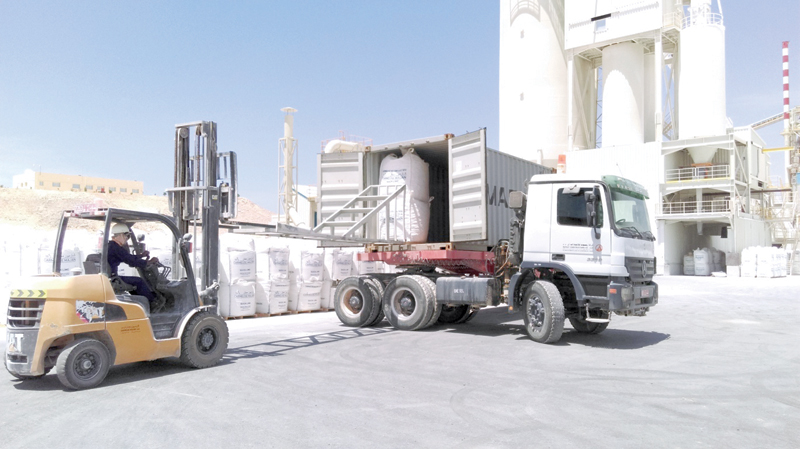

Carmeuse Majan, a Salalah Free Zone company, has made solid industrial production ground in Salalah. In three years the company is not only able to operate full capacity of 400 tonnes per day (tpd) with one kiln; it is ready for growth depending upon availability of natural gas, which is crucial for any expansion.

Wael Abdalla (pictured), Carmeuse Majan’s General Manager, presented an ambitious picture of the company, which has “established us as producer of the best lime quality in the Middle East from chemical point of view as well as residual CO2, reactivity and CaO content.”
“The company is keeping ‘made in Oman’ flag so high that it has emerged as the second largest exporter of finished goods from the Port of Salalah. The company remains extremely focused on markets in Oman and the surrounding countries where demand is expected to continue to show a positive trend in the coming years.”
Abdalla admitted that the Carmeuse Majan is operating currently with a single kiln, which is not sufficient to make the overall investment financially viable.
“Development of four kilns is our current expansion plan. Of that the second kiln investment preparations have already started and gas allocation to the second kiln at the soonest is an absolute necessity,” he said and added that in 10 to 15 years from now Carmeuse Majan would have eight kilns.
He, however, reiterated the urgent need of gas to meet the company’s target. “This will require gas allocation to support third and fourth kiln within three to five years and to support fuel needs for four kilns in 8 to 15 years.”
Carmeuse lime, according to Abdalla, is very good in demand in India and other countries and called for seizing the opportunity of organic market growth and be ahead of competition from UAE, Malaysia, Vietnam, etc.
Commenting on some of the broad industry trends and developments taking place in his market, Abdalla termed India as the main target market at the current stage as the steel industry is the main consumer of quick lime in the Indian market.
“Lime demand in India is projected to grow from seven to 12 million tonnes by 2020 driven by fast growing steel industry. Reports suggest that India aims to achieve 300 million tonnes of annual steel production by 2025-30,” he said.
The lime is ideal for a large variety of high demanding applications such as steel, paper, water and waste water, agri-food, construction, flue gas cleaning, chemical industry and others. The majority of the production is exported to India.
He finds overall good business environment in Oman and a major boost it has got from the e-services and continuous improvement of investment laws and regulations. The governmental policies to diversify the national income sources are expected to reflect positively on all the economy sectors.
The Carmeuse Majan GM called for readiness to meet aggressive competition in all the sectors. “We believe Salalah Free Zone can play a vital role in making better business environment in Salalah by attracting more investors to the region. However, the role would be further enhanced with government’s support in terms of gas supply, simplified investment laws, simplified banking regulations, incentives to the new and existing investors, etc.”
Oman Observer is now on the WhatsApp channel. Click here



